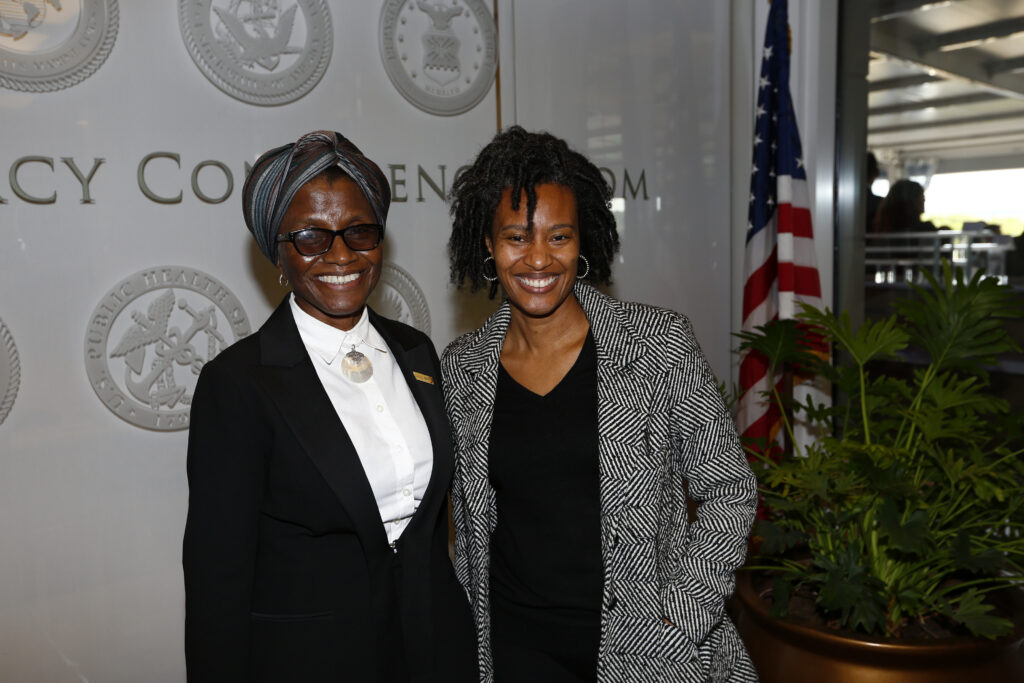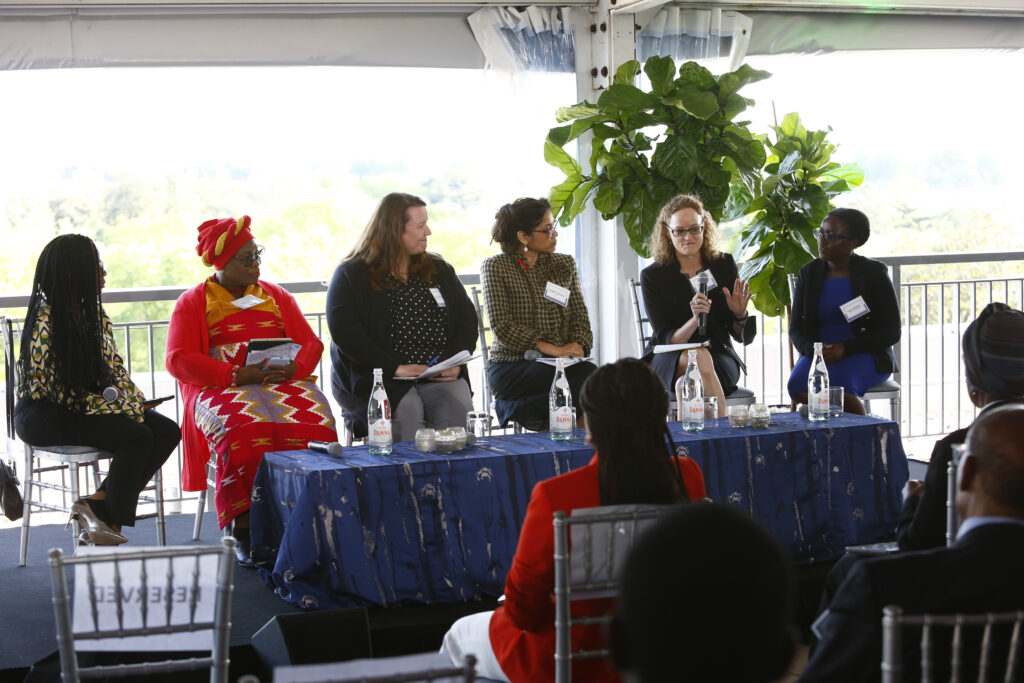World Malaria Day 2022 events in Washington, DC, concluded with the government of Kenya welcoming representatives from malaria-endemic countries and donor countries to the Potomac View Terrace at the American Pharmacists Association to discuss the upcoming seventh replenishment of the Global Fund to Fight AIDS, Tuberculosis, and Malaria.
The Global Fund and the U.S. President’s Malaria Initiative work closely together both globally and on the ground in 27 countries to leverage investments. The current Global Fund investment case calls for a minimum $18 billion to get the fight to end these three diseases back on track, build resilient and sustainable systems for health, and strengthen pandemic preparedness. This will save 20 million lives between 2024-2026 and create a world that is more equitable and safer from future threats.
In recorded remarks, current chair of the African Leaders Malaria Alliance President Uhuru Kenyatta of Kenya opened the event by congratulating African countries on averting the predicted doubling of malaria deaths during COVID-19 and urging the global community to get back on track toward meeting the Sustainable Development Goals of ending malaria, TB, and AIDS in Africa by 2030.
At the podium Kenyan Ambassador Lazarus O. Amayo and African Union Ambassador Hilda Suka-Mafudze echoed how African countries have themselves increased their funding commitment toward ending malaria.

Joy Phumaphi, Executive Secretary of the African Leaders Malaria Alliance, and Loyce Pace, Assistant Secretary for Global Affairs at U.S. Department of Health and Human Services. Photo by Stuart Ramson for United Nations Foundation
Loyce Pace, Assistant Secretary for Global Affairs at U.S. Department of Health and Human Services, expressed the United States’ pride in hosting the seventh replenishment of the Global Fund and its call for other G7 countries and donors to help meet the replenishment target in order to reduce malaria. President Joe Biden’s March 28 budget includes a $2 billion contribution to the Global Fund, for an intended pledge of $6 billion over three years. The Global Fund estimates that met investments will reduce cases of malaria by 66 percent, cut malaria deaths by 62 percent and eliminate malaria from at least six countries by 2026.
French Ambassador Philippe Etienne and British Deputy Head of Mission Michael Tatham CMG expressed the commitment of their respective countries to supporting the Global Fund.
Recorded remarks from the World Health Organization’s Dr. Tedros Adhanom Ghebreyesus celebrated the first malaria vaccine and spelled out what he believes is needed to end malaria: investments in research and development for new tools, ensuring existing tools are accessible to those who need them most, improved disease surveillance, strong health systems, government leadership, and active community engagement.

Acting U.S. Global Malaria Coordinator Julie Wallace speaks about PMI and Global Fund support of community health systems and the critical role of community health workers. Photo by Stuart Ramson for United Nations Foundation
Julie Wallace, Acting U.S. Global Malaria Coordinator, and Dr. Angeli Achrekar, Acting U.S. Global AIDS Coordinator and Special Rep. for Global Health Diplomacy, joined an all-female panel for a conversation between global health and civil society leaders on the importance of a fully-replenished Global Fund.
“The Global Fund is one of the most powerful partnerships that exists, full stop. It works,” said Dr. Achrekar.
Joy Phumaphi, Executive Secretary of the African Leaders Malaria Alliance, closed the event by saying that voices from Africa rose up this week and resonated to Washington, Paris, Berlin, Brussels, Tokyo, Ottawa and others in a call to fight for what counts.
“Listening to our communities, our mothers, our children, we can create a world free from malaria,” she said. “Zero malaria starts with all of us.”
